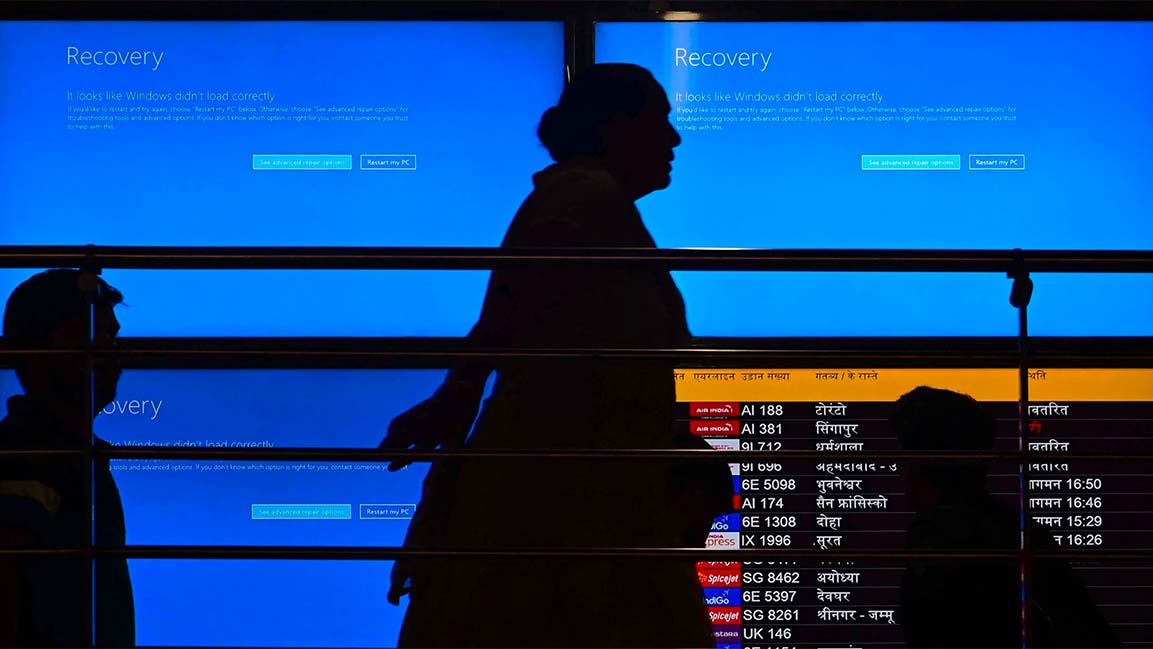- | 9:00 am
Amidst the global recession, why are MENA businesses still spending on tech?
Companies are prioritizing investment in cybersecurity, cloud, and AI technologies to remain competitive.

A recession is coming, based on many surveys that found the most pessimistic economic outlook in over a decade. Contingency plans are in place. Businesses are laying off tens of thousands of employees in anticipation of slower growth and a more cautious enterprise market.
The good news?
Business investment in technology remains remarkably resilient in the Middle East and North Africa. As the region’s digital economy increasingly takes shape, despite several headwinds, including volatile demand, high inflation, and supply chain uncertainties, they are not trimming their digital projects. It’s a source of stability for the economy, analysts say.
The reason for the commitment to tech spending comes from what companies learned from the 2008 financial crisis and the recent pandemic. Deep cuts in tech investments were correlated with companies falling behind competitors once the economy rebounded.
“During a recession, while businesses may reduce spending in many areas, they often continue to invest in technology to improve efficiency and productivity. Technology remains at the core of operations and growth,” says Mouna Essa-Egh, Vice President, Middle East and Africa, Secure Power division, Schneider Electric.
The demand for IT is expected to be stronger as enterprises push forward with digital transformation initiatives. “During times of economic uncertainty, businesses survive by adapting their digital infrastructure to meet evolving requirements,” says Amr AlMasri, Regional Director, Genesys, Middle East.
Consider this: spending on ICT across the region will top $233.8 billion this year, an increase of 3.9% over 2022, according to IDC.
Telecommunications services spending will increase 3.6% year-on-year in 2023 to reach $133.9 billion, with IT investment set to grow 4.3% over the same period to hit $99.9 billion.
“To navigate storms of disruption, organizations will need to invest in strengthening their digital resiliency, so they are better positioned to succeed in new market environments as conditions continue to change,” Jyoti Lalchandani, IDC’s group vice president and regional managing director for the META region, said in a statement.
WHAT ARE THE COMPANIES SPENDING ON?
Cloud computing, data analytics, AI and cybersecurity software have become increasingly mainstream in recent years. Companies now see them as vital tools for conducting business.
Since AI has drastically enhanced how businesses interact, in real-time, with their customers, manage operations, and ensure business continuity, AlMasri adds, “organizations have prioritized investment in AI technologies and solutions to remain competitive.”
Business investment, especially in software, also remains fairly strong. According to Essa-Egh, spending on “software services to drive a greener and more powerful future” will continue.
According to predictions, spending on public cloud services will grow by 25% to surpass $10.4 billion this year, and software-as-a-service apps will account for 43.2% of public cloud software spending.
Cloud-managed services will grow over 16% to surpass $1 billion in 2023, while spending on AI will reach $7.9 billion this year.
Meanwhile, as businesses increasingly rely on data, analyzing it as quickly as possible for real-time decision-making, computing, networking, and storage capabilities as close as possible to the endpoints that generate data is becoming crucial.
“Network edge is increasingly a priority for business efficiency and sustainability,” says Essa-Egh.
According to her, companies in the region are investing in data centers. “Businesses are aware of the importance of data management and efficiently harnessing the power of data, and as a result operating sustainable, powerful data centers is a key priority.”
Recent years’ increase in ransomware attacks and other hacking forms have also raised data security profiles as a top priority among more firms within their budgeting processes.
Top tech managers forecast cybersecurity to be the top spending item among tech budgets.
With IT teams already under pressure to limit resources, and with cyber threats getting more innovative and advanced, efficiency and performance are sure to be prioritized, says Emad Fahmy, Systems Engineering Manager, Middle East, NetScout. “The rapid adoption of IoT, cloud, and AI technologies also means the interconnectivity of our world is rapidly increasing, which leads to an ever-expanding threat landscape. With the need for visibility and performance monitoring greater than ever, IT decision-makers today prioritize purchasing comprehensive and customizable security solutions that can effectively monitor numerous layers of services, applications, and hybrid cloud servers.
TECH TO REDUCE COST
Do more with less is a common business motto during economic uncertainty. A BCG survey found that 60% of companies plan to increase tech and digital transformation investments in 2023. So are businesses also looking for tech to reduce costs?
The role of technology, experts say, has also steadily evolved. It is a key ingredient that contributes to a company’s revenue and profits. Businesses will continue prioritizing AI, ML, and cloud-based solutions to reduce costs and improve efficiency.
“Businesses are looking to quickly transition from physical, on-premises solutions to cloud-based and hybrid models to reduce costs and gain flexibility, data security, and functionality. Furthermore, companies will also start prioritizing AI and automation in their business infrastructure to reduce labor costs and improve customer experience,” says AlMasri.
Circling back to the advantages of technology, Essa-Egh adds: “A smart business approach would entail targeted cost-cutting that would prioritize resources to enhance tech within the business for long-term benefits.”
Clearly, the managers who shape technology strategy and spending at companies across the region hold a vital swing vote in today’s economy.








































